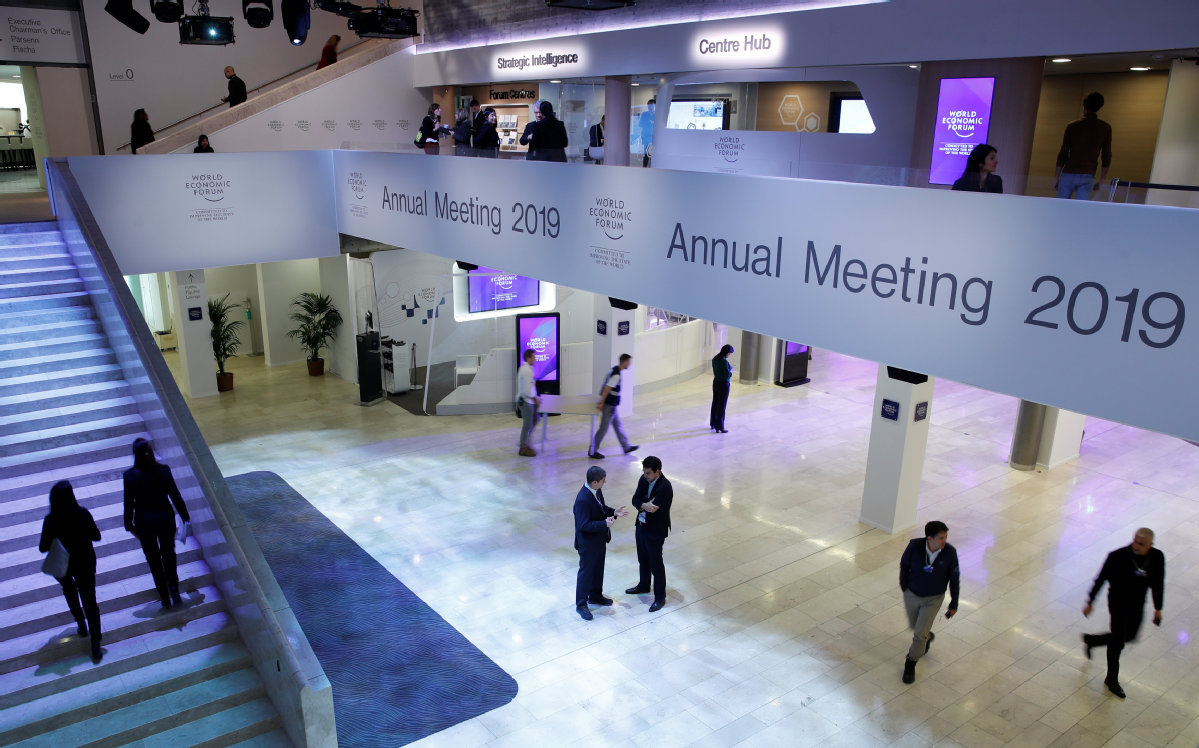Opportunities and obstacles at the World Economic Forum


As world leaders assemble for another annual World Economic Forum in Davos, Switzerland, they are faced, as usual, with a mass of complex and seemingly intractable challenges. From US-China trade tensions to the difficulty of sustaining economic growth while dealing with climate change, the feeling globalization and the international order are under threat is palpable.
Foremost in everyone’s minds is likely to be the slowdown in the Chinese economy. In part this has been caused by trade tensions started by US president Donald Trump. But it also stems from factors in China’s domestic economy, such as rising wages and industrial overcapacity.
No single country can expect its economy to grow endlessly. As a country becomes wealthier, its competitive edge in the global marketplace inevitably erodes and growth slows down. This has been the case for every country which has experienced industrialization and development. It happened to Britain 100 years ago, and it happened to Japan in the 1990s. China’s gradually slowing GDP growth and reducing industrial output are not signs of crisis but of economic cycles at work.
As Chinese grow wealthier, they expect higher salaries. This makes exports less competitive and forces companies, including Chinese ones, to move their factories to countries with cheaper labor in Asia or Africa. As a consequence, maintaining growth demands a shift in the economic model, which is never easy. Transitioning to new drivers of growth — such as green technologies which can turn a profit — is the situation in which the Chinese economy currently finds itself.
The problem is that ever since the 2008 financial crisis, China’s continuing dynamism has been the main driver of global economic growth. And while the Chinese engine currently sputters, in need of a fresh fuel injection in the form of renewed industrial dynamism, the rest of the world seems to have run out of ideas to get out of the impasse.
There can be no doubt, for instance, that trade tensions and tariffs are not the answer to anything. The decline in the US tech giant Apple’s profits, as Chinese sales of its iPhones plummet, is a clear sign Trump’s approach to economic policy is not working. More than that, in the deliberate choice of non-cooperation the aggressive Trumpian approach to international affairs destroys opportunities for mutual benefit. The US government shutdown due to Trump’s insistence on building a wall on the Mexican border — and the Democrats’ refusal to agree to fund it — is another indicator that the President’s negotiating style leads to meltdown, not growth.
Across the Atlantic, there are also no signs of realistic initiatives for re-stimulation of the global economy. While the United Kingdom subjects itself to self-inflicted paralysis via the process of leaving the European Union, the lack of political consensus in Europe impedes clear planning for the future.
Even in Asia, the inability of countries in what is now the world’s economic center of gravity to find ways to work together is impeding globalization. Rivalries abound, and effective cooperation is in short supply.
Precisely two years ago, at the WEF in January 2017, President Xi Jinping called for countries to work together to enhance economic globalization. Quoting the British novelist Charles Dickens’ line that “it was the best of times, it was the worst of times”, Xi emphasised both the urgent need for action on the world’s problems and the opportunity for nations to increase cooperation to solve them.
It needs to be said in the last two years the crises facing the world have not been solved, and in fact have deepened. The US-China trade conflict is damaging the economies of both countries and dragging the rest of the world down with it. Populist movements in many parts of the developed world are suggestive of introverted nationalism rather than increased global trade and investment cooperation. Above all, action on climate change remains elusive, with scientists predicting doom if greenhouse gas emissions are not drastically reduced.
In these circumstances, it is high time for global leaders and privileged elites attending Davos to finally take heed of Xi’s inspirational words and make economic globalization, including a push for investment in green energies and enhanced cross-border connectivity, their top priority. It has to be hoped, even in the unfortunate absence of most leading US officials, that the WEF can still be a platform for discussion of realistic ways to develop win-win strategies to build a better future for humanity and the planet.
The author is a lecturer in international relations at the Jan Masaryk Centre for International Studies, University of Economics in Prague.
The opinions expressed here are those of the writer and do not represent the views of China Daily and China Daily website.


































